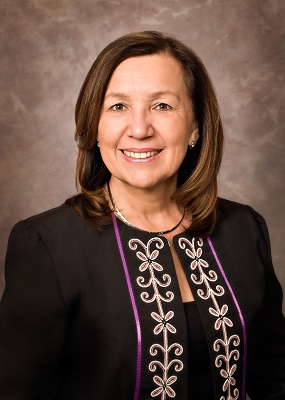“Nourishing the Learning Spirit: Bringing Indigenous Knowledge into our Schools”
 This fall, the Mount’s President’s Visiting Lecture Series on Teaching and Learning will feature respected Mi’kmaw scholar Dr. Marie Battiste, Professor of Education, University of Saskatchewan.
This fall, the Mount’s President’s Visiting Lecture Series on Teaching and Learning will feature respected Mi’kmaw scholar Dr. Marie Battiste, Professor of Education, University of Saskatchewan.
Dr. Battiste’s talk titled “Nourishing the Learning Spirit: Bringing Indigenous Knowledge into our Schools” will be of particular interest to educators, though will be relevant to anyone with an interest in sharing Indigenous knowledge. Her lecture will be held at the Mount on Thursday, October 15, 2015 at 7 p.m. in Auditorium A of the Seton Academic Centre. All are welcome and the event is free (registration is not required).
Dr. Battiste is a Mi’kmaw educator from Potlotek First Nations, Nova Scotia. She is the founding Academic Director of the Aboriginal Education Research Centre (AERC) at the University of Saskatchewan and founding board member for the Canadian Council on Learning. She is a graduate of a number of universities including the University of Maine, Harvard and Stanford. Her research interests are heavily tied to initiating institutional change in the decolonization of education, in particular humanities, language and social justice, and postcolonial educational approaches that recognize and affirm the political and cultural diversity of Canada.
In her recent book, Decolonizing Education, Nourishing the Learning Spirit, Dr. Battiste eloquently conveys the impacts of European colonization in Canada on Aboriginal Canadians.
Drawing on her vast indigenous knowledge she invites educators to critically examine the false logic of racism and how Eurocentric ideology has created the ability to suppress and subordinate for its own good. Dr. Battiste emphasizes the importance for educators to understand their position in relation to colonization and accept and be prepared to unpack privileges involved with whiteness, racism and Eurocentrism.
Dr. Battiste reminds us, “It is time to make a genuine effort in understanding the deep-rootedness of Aboriginal knowledge, language and culture as a powerful and sacred bond with the land, community and people.”